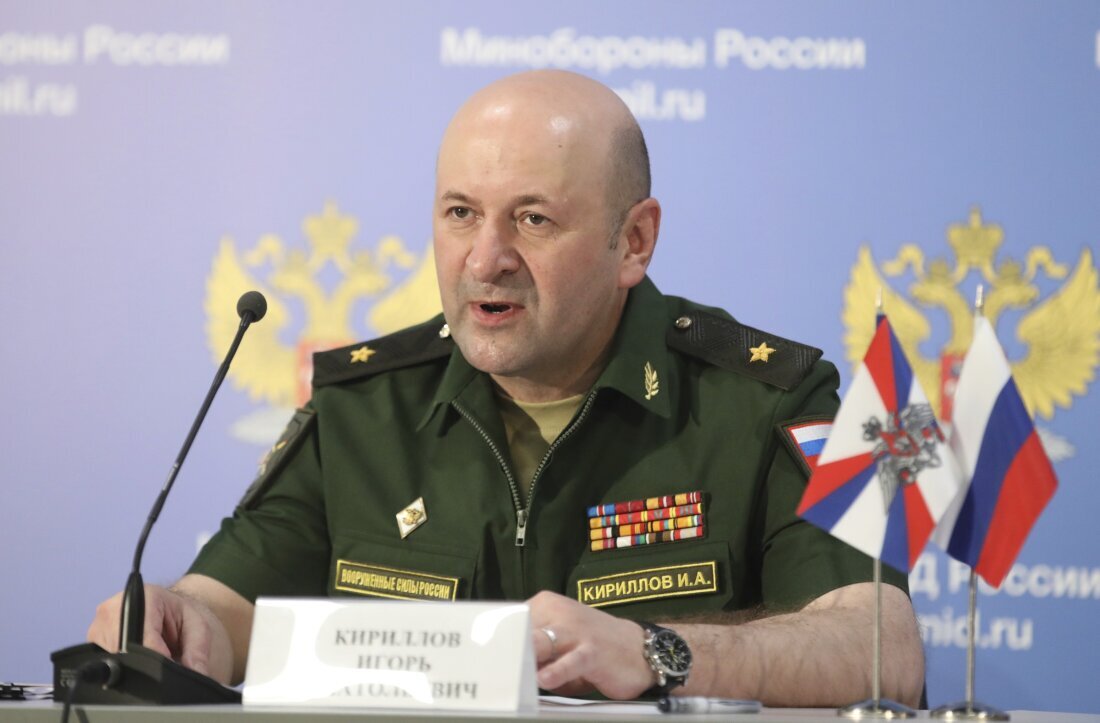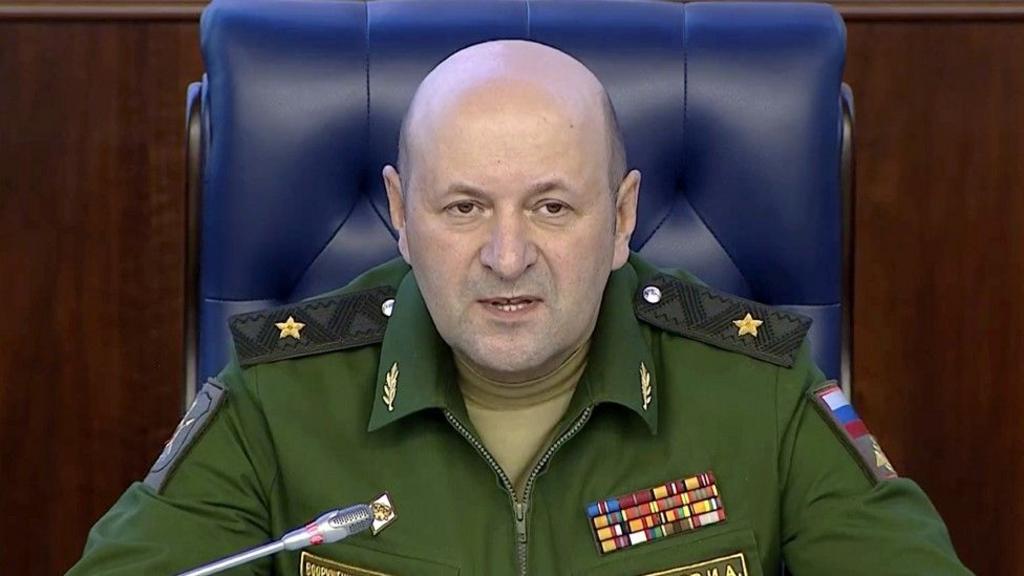Lt. Gen. Igor Kirillov, the head of Russia’s Nuclear, Biological, and Chemical Defense Forces, was killed in Moscow on Tuesday by a bomb concealed in a scooter near his apartment building. The attack occurred a day after Ukraine’s Security Service (SBU) charged Kirillov with war crimes, accusing him of overseeing the use of banned chemical weapons during the war in Ukraine. Kirillov’s assistant, Ilya Polikarpov, was also killed in the explosion. A Ukrainian official, speaking anonymously, claimed responsibility for the attack, describing Kirillov as a “legitimate target” due to his alleged war crimes.
Kirillov, 54, had been under sanctions from countries such as the U.K. and Canada for his role in the Ukraine conflict. He had regularly accused Ukraine of using toxic agents and planning attacks with radioactive substances—claims dismissed by Kyiv and its allies as disinformation. The SBU has documented over 4,800 instances of Russia allegedly deploying chemical weapons, including chloropicrin gas, since its invasion of Ukraine in February 2022. Russia has consistently denied these allegations and has accused Ukraine of similar actions.

Russian General Kirillov Killed in Moscow Bombing Amid War Crime Allegations and Escalating Tensions
Russian authorities described the attack on Kirillov as an act of terrorism and vowed to retaliate against Ukraine. Dmitry Medvedev, deputy chair of Russia’s Security Council, called the bombing an effort by Ukraine to deflect attention from its military setbacks and promised severe consequences for Kyiv’s leadership. Russian military bloggers speculated, without evidence, that the United States might have been involved. The U.S. State Department denied any prior knowledge or involvement in the incident.
This high-profile assassination follows a series of similar attacks on Russian figures linked to the war in Ukraine. Past incidents include the killing of Darya Dugina in a car bombing in 2022, the death of military blogger Vladlen Tatarsky from an explosive statuette in 2023, and the assassination of pro-Moscow lawmaker Illia Kyva near Moscow later that year. These targeted attacks, which Russia attributes to Ukrainian operatives, have escalated tensions and drawn international attention to the conflict.
Kirillov’s killing underscores the growing reach of Ukraine’s efforts to strike at prominent Russian targets, even within Moscow. While Ukrainian officials justify such actions as necessary countermeasures in a brutal conflict, Russia has vowed to intensify its response. The war has continued to see heavy losses on both sides, with Russia making territorial gains in Ukraine’s Donetsk region and Ukraine striving to retaliate, both on the battlefield and through targeted operations.











































